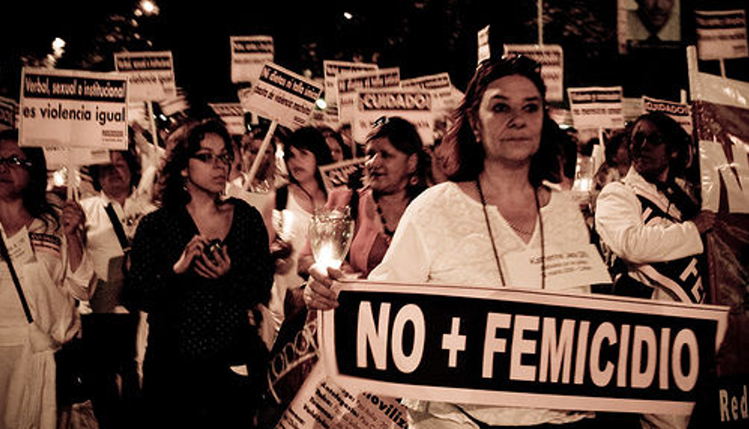RIO DE JANEIRO, BRAZIL – The president of Costa Rica, Carlos Alvarado, signed this Monday (23) a law that extends the punishment for the crime of femicide with up to 35 years in prison against men who take advantage of their bond of friendship or trust to murder a woman.
Authorities indicated that this law settles a historical debt with women since it does justice with the victim’s families and faces impunity. Previously, if there was no relationship with the victim, it was not typified as femicide and the prison sentence was lower.
Read also: Check out our coverage on Costa Rica
“The signing of this law expands and strengthens the legal tools to punish the different types and degrees of violence against women, offering greater protection to victims, witnesses, and denouncers of the scourge of gender violence in our country,” said the Costa Rican president.

This is the second reform to this law that Costa Rica approves this year to broaden the scope of action, since previously, only the crime committed by the partner, which is punishable with a maximum of 50 years in prison, was classified as femicide.
The first reform was approved last March to include ex-spouses, ex-boyfriends, and ex-partners in general, with a maximum penalty of 50 years in prison. The second reform ratified this month by Congress further broadens the scope of the law.
The new regulation signed this Monday by the President stipulates the expanded femicide with a prison sentence of 20 to 35 years when the perpetrator has taken advantage of a relationship or bond of trust, friendship, kinship, authority, or a relationship of power with the woman victim or when the act has occurred within the family relationship of consanguinity or affinity up to a third-degree, whether or not they lived under the same roof.
The same prison sentences apply when the perpetrator has a history of violence against the woman victim, family, work, student, community, or religious sphere, even when the facts have not been reported.
“Justice operators will be able to punish femicides with a prison sentence of up to 35 years without any relationship with the victim. This law settles a historical debt with women, does justice to the families who are victims of femicide, and confronts impunity by ensuring that the full weight of the law falls against anyone who kills a woman because she is a woman,” said the Minister for the Status of Women, Marcela Guerrero.
The sanctions can also be enforced when the aggressor is a sexual exploiter, trafficker, or pimp client of the woman victim and when the woman has refused to establish or re-establish a permanent or casual relationship or relationship or to have any sexual contact.
The reforms will also apply when the aggressor prepares, facilitates, consumes, or conceals a sexual crime when he has committed the act using the victim as an act of revenge, retaliation, or debt collection in organized crimes of drug trafficking and related crimes and when the act has occurred due to the participation, position or political activity of the woman victim.
According to the Observatory of Gender Violence against Women of the Judiciary, in Costa Rica, from 2007, the year in which the Law of Criminalization of Violence against Women was enacted, to December 31, 2019, there were a total of 355 femicides. While in 2020, a total of 23 femicides were recorded.

